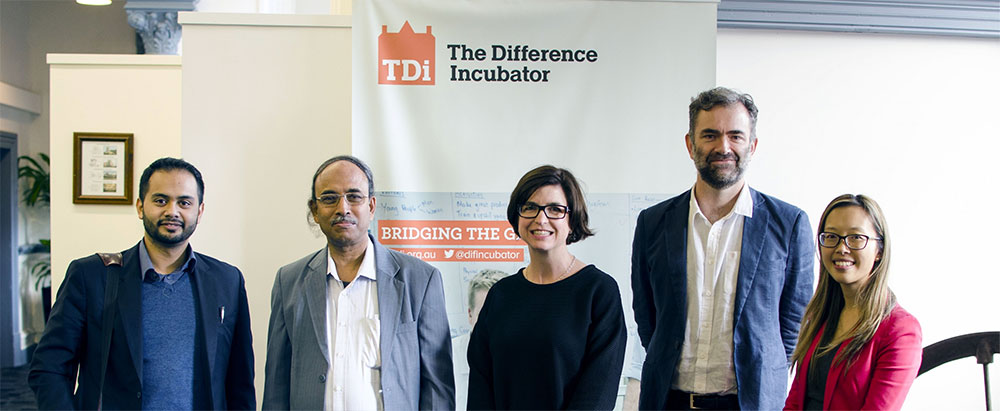BRAC – the world’s largest development organisation and NGO, dedicated to empowering people living in poverty, has cracked what most of us only dream of. They have taken an iterative, design approach to building social enterprises that not only address major social need but drive much needed revenue for their development work, and they’ve done it at scale!

(L-R) Asif Kashem, Partnerships and Donor Liaison Office, BRAC. Dr. Muhammad Musa, Executive Director, BRAC. Bessi Graham, CEO, TDi. Tom Nettleton, First Secretary, Australian High Commission in Dhaka. Chung-Ling Chau, DFAT Liaison.
Last week at TDi we had the incredible honour of hosting senior BRAC officials at our Melbourne Headquarters. TDi work in parternship with DFAT in the Pacific where we are taking an Aid to Trade approach, successfully using small amounts of catalytic aid funding and then leveraging that with private, impact investment dollars. It was this work that formed the basis of our exploration with BRAC and DFAT on Friday. We have been working to build up the capacity of local Small and Medium Enterprises (SMEs) in the Pacific, to help them become ready to take on private investment. With our key partner, Benefit Capital, we have now established the Genesis Impact Fund where we are putting Impact Investment dollars to work in the Pacific projects that we have worked on.
“TDi is the best donor-funded private sector development initiative I have witnessed in the Pacific over the last 20 years, and it’s sustainable”
– Caleb Jarvis, Pacific Islands Trade Commissioner, Pacific Islands Trade & Invest
With TDi’s commercial approach focused on proving you can do good and make money, we are drawn to the approach and incredible track record that BRAC have built up over many decades. We were encouraged to discuss the similarities in our work, and reminded once again that in amongst our drive and focus we also need to be patient, as work of this nature and scope really does take time to deliver results. Luckily, at TDi we are committed for the long haul and know that to transform the world we have to follow the mantra of our founding partners at donkey wheel Foundation: “think different, act different, make a different difference!”
“[BRAC is], by most measures the largest, fastest growing non-governmental organisation in the world – and one of the most business-like”
— The Economist
BRAC are described by the New York Times as the “..best aid group you’ve never heard of” and by author Paul Collier as the “…most astounding social enterprise in the world”. So we were thrilled to have the opportunity to learn from BRAC and explore ways to refine our approach. Our executive team will be travelling to Bangladesh early next year to see first hand the impact that BRAC are having and how they are creating the multifaceted work they do.
We look forward to finding ways to share and partner further with BRAC over the coming years as we too want to change the world and prove our models at scale. Our models that put capital to work in addressing entrenched social and environmental problems